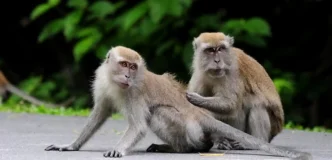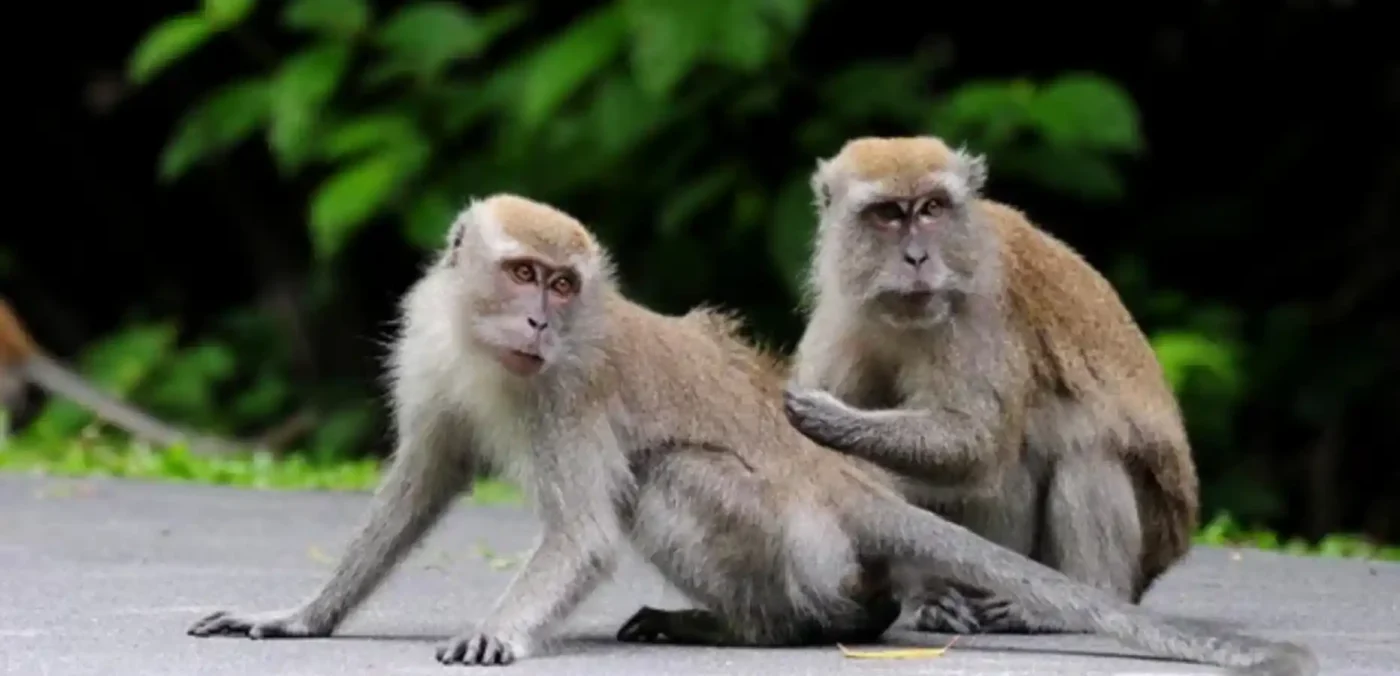In the quiet halls of Mandai Columbarium in Singapore, a place of reverence and remembrance, visitors have recently found themselves facing an unexpected challenge: bold and persistent monkeys. During the Qing Ming Festival, a traditional Chinese occasion for honoring ancestors, families visiting the columbarium to pay their respects encountered troops of long-tailed macaques snatching food offerings and startling mourners. The incidents have raised concerns about safety and prompted the National Environment Agency (NEA) to issue reminders about managing food offerings at the site.
Unwelcome Guests During Qing Ming
The issue came to public attention through a Facebook post by Mr. Loke Jun Xiong on May 1, shared on the Complaint Singapore page, which has a significant following of over 244,000 members. Mr. Loke described a troubling scene during the Qing Ming Festival, also known as Tomb-Sweeping Day, when families visit the resting places of their loved ones to make offerings and perform rituals. “A whole troop of monkeys was harassing visitors doing Qing Ming at Mandai Columbarium this morning. Once they see food, they will come and surround (the area)” he wrote, highlighting the animals’ lack of fear around humans.
Accompanying videos showed monkeys boldly taking food items like roasted meat and fruit left as offerings for the deceased. Mr. Loke noted a particularly alarming incident where another family was forced to throw lighted candles and sand at the animals to ward them off. “Soon someone will get hurt” he warned, capturing a growing unease among visitors about the potential for more serious encounters.
The Qing Ming Festival, observed around April 4 each year with a customary period of 10 days before and after, is a time of deep cultural significance. Families gather to clean graves or columbarium niches, burn incense, and leave offerings as a gesture of respect for their ancestors. However, at Mandai Columbarium, located near a nature reserve, these traditions have inadvertently attracted wildlife, turning solemn visits into tense standoffs.
NEA Responds with Preventive Measures
In response to the incidents and queries from local media, the NEA outlined steps already in place to manage human-wildlife interactions at the columbarium. The agency has installed advisory posters across various blocks of the facility, educating visitors on how to behave around monkeys and what precautions to take. Notices also remind mourners not to leave food offerings unattended, as these can lure animals closer to human spaces.
“Food offerings are cleared regularly after prayers to minimise food availability” the NEA stated, emphasizing efforts to reduce attractants for wildlife. Additionally, rubbish bins at the site are designed to prevent animals from rummaging through waste, with strict instructions to keep them covered at all times. These measures aim to balance the cultural practices of visitors with the realities of the columbarium’s proximity to natural habitats where long-tailed macaques thrive.
The agency also pointed visitors to resources from the National Parks Board, including a wildlife advisory titled “What to do when you encounter a long-tailed macaque.” The guide offers practical tips, such as avoiding direct eye contact with the animals, refraining from feeding them, and securing personal belongings to prevent confrontations. While these guidelines are helpful, the boldness of the monkeys at Mandai suggests that more awareness and vigilance are needed among the public.
A Delicate Balance Between Tradition and Nature
The encounters at Mandai Columbarium highlight a broader challenge in Singapore: coexisting with wildlife in a densely populated urban environment surrounded by rich biodiversity. Long-tailed macaques, native to the region, are a common sight near nature reserves and forested areas. Their adaptability to human environments, however, often leads to friction, especially in spaces where food is readily available. For families observing Qing Ming, the presence of monkeys disrupts a time meant for quiet reflection, turning cultural rituals into moments of stress.
While no injuries have been reported from the recent incidents, the fear expressed by visitors like Mr. Loke underscores the potential risks. A startled monkey or an aggressive reaction from a human could escalate a situation quickly. The NEA’s proactive measures are a step in the right direction, but they also place part of the responsibility on visitors to adapt their practices—something that may feel at odds with deeply ingrained traditions.
Looking Ahead: Safety and Respect for All
As Singapore continues to navigate the intersection of urban life and natural habitats, the situation at Mandai Columbarium serves as a reminder of the need for mutual respect between humans and wildlife. For now, families visiting during Qing Ming and beyond are urged to heed the NEA’s advice, ensuring that food offerings are managed carefully to avoid attracting monkeys. Meanwhile, the quiet dignity of a place meant for remembrance hangs in a delicate balance, as both mourners and macaques share a space that belongs to neither yet impacts both.
In the heart of Mandai, where memories of the past are honored, a small but persistent challenge lingers—how to maintain peace for all who tread there, human and animal alike.
















